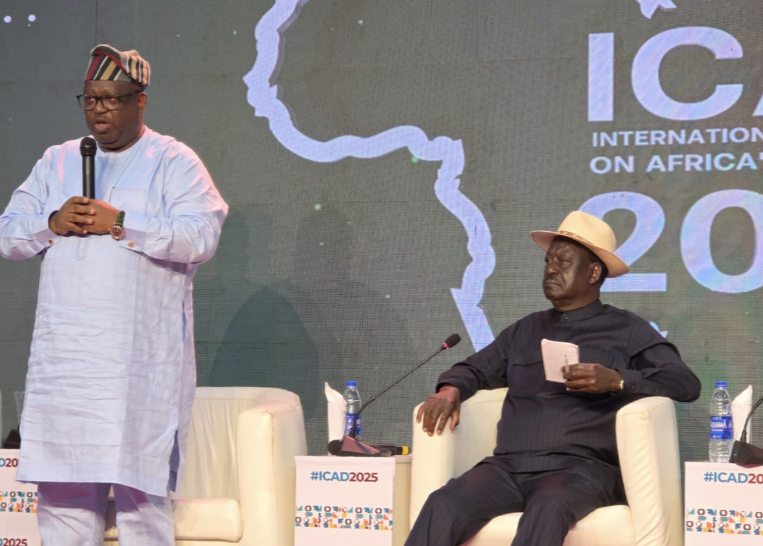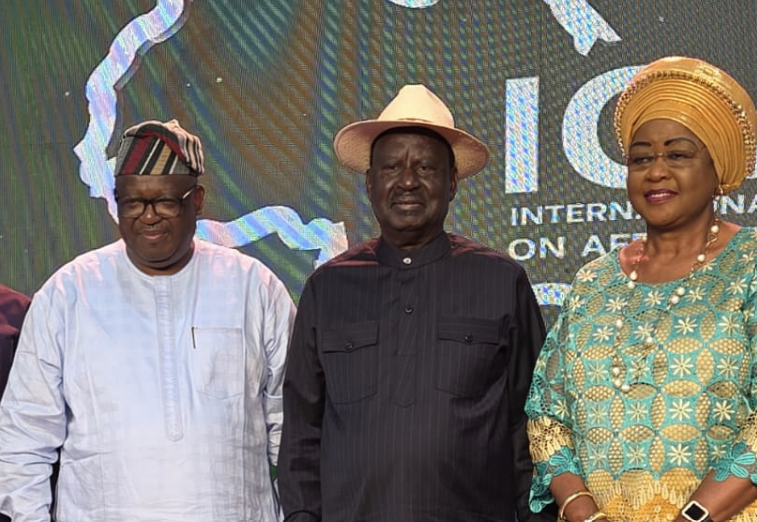 Raila Odinga, ODM leader at the ICAD 2025 Summit held in Abuja, Nigeria on July 23, 2025.
Raila Odinga, ODM leader at the ICAD 2025 Summit held in Abuja, Nigeria on July 23, 2025.
ODM leader Raila Odinga scrapped visa restrictions for Africans and appealed to African heads of state to embrace the free movement of people If you want to unlock that full economic potential.
At the ICAD 2025 summit in Abuja, Nigeria, Raila said African countries are sacrificing long-term prosperity due to short-term visa revenue.
“The benefits of the freedom movement far outweigh visa revenue,” he said, urging leaders to prioritize continental integration and youth empowerment in Africa.
Raila's remarks come as the African Union and other regional blocs are pushing to remove barriers that hinder people, goods and services across borders.
He emphasized that the current majority of Africa's youthful population holds the key to changing the future of the continent, and that it must provide tools, space and freedom to do so.
“It's their time to deliver the dreams of our founders. We need to strengthen our governance and unlock their potential,” he said.
A World Bank study predicts that the full implementation of Africa's Continental Free Trade Area (AFCFTA), coupled with the free movement of people, could increase Africa's income by 9% and raise over 50 million people from extreme poverty by 2035.
The same study estimates an increase of up to $450 billion (SH58.05TRN) in intra-African trade if mobility restrictions are relaxed.
Countries such as Kenya and Rwanda, which have taken bold steps to liberalize visa regimes, have already enjoyed some of these benefits.
Rwanda removed all visa requirements for Africans in 2023, and Kenya continued to make similar announcements for Libya and Somalia later that year.
All across the continent, visa-free travel calls within Africa have gained traction, albeit slowly.
As of 2025, only five African countries – Benin, Gambia, Seychelles, Rwanda and Ghana – have eliminated visa requirements for all African citizens.
Ghana has become the latest to do so, and in January this year it has deployed its visa-free policy.
While the overall outlook has improved, many African countries still maintain restrictive entry requirements.
The 2022 Africa Visa Openness Index found that only about 28% of travel within Africa are actually unvisa. Almost half of African countries still require most other African state travelers to obtain a visa before they arrive.
Despite the slow pace of reform, the economic incidents at open borders are compelling.
These policy changes are believed to stimulate tourism, cross-border entrepreneurship and local business activities.
However, experts warn that visa liberalization alone is not enough.
Its success relies on support infrastructure, security cooperation and efficient border management.
Without these, the promised profits may remain elusive.
Still, Raila's call acts as a timely reminder of what's at stake. With Africa's population forecast to double by 2050, and visa-free mobility could be a game-changer as the urgency to utilize demographic dividends is increasing.
His remarks are consistent with the African Union Agenda 2063, which envisions a continent of unified, prosperous and peaceful.
As the continent continues to tackle the challenges of youth unemployment, weak intra-African trade and fragmented transport systems, Raila's vision provides a bold but necessary path. Decompose the artificial boundaries that divide the continent, and Africans move freely to build Africa freely.


